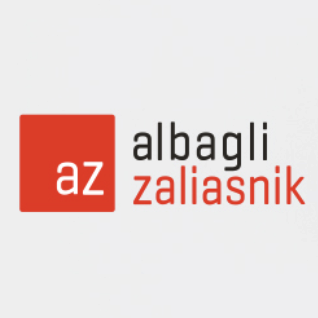
06-03-2022 | Noticias-en
After 5 years of processing, on April 13 of this year, Law No. 21,314 was published in the Official Gazette, which establishes new transparency requirements and reinforces the responsibilities of market agents, regulates pension counseling and other matters.
The Law amends the following legal bodies:
Law No. 18,045 on Securities Market.
Law No. 18,046 on Corporations.
Decree Law No. 3,500 of the Ministry of Labor and Social Security of 1980, which establishes a new pension system.
Decree with Force of Law No. 251, of the Ministry of Finance, on Insurance Companies, Corporations and Stock Exchanges.
Law No. 19,913, which creates the Financial Analysis Unit and modifies various provisions on money laundering and money laundering.
Decree Law No. 3,538 of 1980, which creates the Financial Market Commission.
Commercial Code.
Law No. 18,010, which establishes rules for credit operations and other money obligations.
One of the amendments that generated controversy is the one that established that individuals and companies that make massive recommendations for pension investments, such as changes in AFP funds, must be subject to joint regulation by the Superintendence of Pensions and the CMF, which caused unregulated companies such as Felices y Forrados to announce that they will cease to provide services.
The Law also subjects the provision of financial investment advisory services to the supervision of the CMF, incorporating, among other requirements, that those who habitually provide such services must first register with the CMF.
One of the most relevant amendments in these two areas is the increase in penalties for offenses and the broadening of the agents that may be punished.
The Law also introduces amendments relating to insurance associated with money lending obligations, a digital insurance consultation system administered by the CMF, and default interest on credit operations.
Other amendments to the Law in the area of criminal sanctions are as follows:
Price manipulation: Article 52 of the current Law No. 18,045 is amended, establishing that any type of action, and not only transactions, aimed at stabilizing, fixing or artificially varying the prices of publicly offered securities will be a crime.
External auditing companies: The current article 59, letter d) is amended, stating that the partners of external auditing companies that maliciously issue an opinion or provide false information about the company subject to review, or that alter, hide or destroy information of an audited entity, thus distorting its real financial situation, will be sanctioned.
Regarding directors and senior executives of a company, stock exchange or securities intermediary, letter h) is added to the current article 59 establishing that the delivery of maliciously false information or statements to the board of directors, management, external auditors or risk classifiers is punishable.
Penalties are increased for those who disseminate false or biased information in the securities market and for companies and individuals who do not provide correct information to the CMF.
A new figure, called anonymous whistleblower, is also created to encourage and protect whistleblowing in relation to violations of the CMF’s competition laws. In the event that the complaint results in fines, the whistleblower will receive a percentage of the fine. In this figure, the whistleblower must not be involved in the facts neither as a participant nor as a victim.
Finally, the Law also modifies rules on disclosure of essential information and prohibition of transactions on securities by persons related to the respective issuer in certain circumstances, and in matters of corporations, rules on operations with related parties, independent directors and policies for the election of directors in subsidiaries of parent companies supervised by the CMF.

06-03-2022 | Noticias-en
In Resolution No. SCVS-INC-DNCDN-2020-0013 of September 1, 2020, the Superintendence of Companies, Securities and Insurance (hereinafter, “SCVS”) issued the Ecuadorian Norms for Good Corporate Governance (hereinafter, the “Norms”).
The resolution defines Corporate Governance as “the control and management system of commercial companies”. To this end, it establishes a series of “principles” and “guidelines” that companies may incorporate into their processes.
The principles are as follows:
Equality: refers to fair and equitable treatment of shareholders for an honest and responsible conduct of the company;
Transparency: it is the obligation to inform, to be accountable for its operations;
Responsibility: the sustainability of the company must be ensured; and,
Voluntariness: the guidelines and principles are voluntary for companies to apply.
There are seven guidelines that should be considered for the correct management of corporate governance:
1) Shareholders’ rights and equitable treatment.
The way the company is governed should be practical and shareholders should allow a director to operate the company. Ideally, it should be a person who knows the business.
However, this does not mean not recognizing that shareholders maintain their rights to (i) make decisions at the general shareholders’ meeting; (ii) receive information; and, (iii) participate in the company’s profits.
On the other hand, the Norms indicate that shareholders of the same class must be treated equally. In any case, agreements between shareholders establishing conditions for the negotiation of shares and others are allowed, but these shall not be enforceable against third parties and may not be detrimental to minority shareholders.
2) The General Shareholders’ Meeting or Shareholders’ Meeting
The Norms seek to reestablish confidence in the general meeting or shareholders’ meeting as the supreme body of the company. The idea is that each meeting should act with formality, transparency and efficiency, since it is a basic decision-making and control body of the companies.
In other words, the general meeting or assembly must control the running of the company, monitoring the delegation made to the administrator by means of a permanent supervision that guarantees the correct functioning of the company.
3) The Board of Directors
The Board of Directors is the collegiate body in charge of being the link between the shareholders, the administrator and third parties. The purpose of the Board of Directors is to protect the company’s business and to be the body in charge of ensuring that the governance system is always focused on protecting the company’s interests.
Regardless of whether the Board of Directors is elected by the shareholders, it must always look after the best interests of the company.
4) Family Governance
Family Governance refers to preserving the total or majority control exercised by a given family in a corporate structure. The objective is to adapt the estate planning in order to avoid family conflicts or, in case they arise, to ensure that adequate dispute resolution mechanisms are in place.
To this end, the Norms establish basic guidelines for establishing and managing a Family Assembly or a Family Council. One of the most important recommendations is to create a “Family Protocol” containing a series of rules that seek to guarantee relationships, unity, harmony and, above all, the continuity of the family in the business.
5) Control Architecture
This refers to risk management, internal control systems, information and communication, and monitoring of the companies’ operational activities.
Basically, the control architecture allows the company to have a structure, policies and procedures that are known and complied with by all the people who are part of it. For example, it is recommended to establish an Audit Committee to ensure transparency.
6) Transparency and financial and non-financial reporting
Transparency is the cornerstone of the company’s oversight. The Standards recommend creating a disclosure policy that includes the information that may be disclosed, the manner in which it will be shared, the recipients of the information and the procedures to ensure that the information to be disclosed is protected.
In addition, it is recommended that a system be established to ensure that potential conflicts of interest are resolved.
Finally, companies that adhere to the Corporate Governance Standards must submit to shareholders an Annual Corporate Governance Report together with the management report and the financial statements.
The purpose of this report is to explain the degree of compliance with the Corporate Governance guidelines in order to determine its success.
7) Measures to mitigate corruption
As mentioned in the previous section, it is the obligation of management to prepare and approve an annual Corporate Governance report. The purpose of this document is to adopt new corporate skills to identify improper practices and apply the respective controls to combat them or, if they already exist, to adopt measures to mitigate or remedy the eventual damages that may derive from acts of corruption.
In addition to these limitations, the Standards recommend that companies adopt corporate compliance programs and anti-corruption practices. This program should essentially include the identification of illicit activities, the implementation of a code of ethics or conduct aimed at members and employees regardless of their position, and protocols for action in the event of a possible corruption scenario.
In general, the entity in charge of this guideline and its observance should be the Risk Management Committee or whoever takes its place.

06-03-2022 | Noticias-en
Environmental protection and sustainable practices are now an indispensable standard that every company must have. Being environmentally responsible has become yet another business product for companies, generating tangible benefits such as increased sales, brand enhancement and reduced penalties.
Companies that apply policies, processes and actions to ensure compliance with environmental regulations have recognized that not only do they strengthen their compliance programs in the face of a large number of risks, but this exercise has allowed them to discover opportunities to reduce operating costs while reducing their environmental impact.
Benefits of an effective environmental compliance program:
Reputational and sales: Consumers and business partners place greater value on brands that have demonstrated their commitment to environmental compliance and operate in a sustainable manner.
In Costa Rica, as in many other countries, environmental standards have been incorporated into public procurement, such as prohibiting the purchase of single-use plastic products and favoring recycled raw materials.
- Cost reduction: Compliance with environmental regulations is usually linked to proper management of resources such as water, electricity, physical space and waste reduction, all of which contribute to a reduction in regular costs for companies.
- Legal defense against incidents: The successful application of procedures focused on respecting environmental regulations has been accepted by the authorities as evidence to reduce the legal liability of companies in the face of environmental incidents.
In contrast, the authorities tend to penalize more severely those companies that over time have proven to be indifferent to environmental compliance.
Risks of not having an effective environmental compliance program:
Internationally it has been understood that liability for environmental damage falls on the companies that caused it including their owners, especially in Costa Rica, the “Wildlife Conservation Law” establishes that companies that are part of the same conglomerate (economic interest group) are also liable, so the parent company of a company domiciled in Costa Rica can be held liable for the environmental non-compliance of its subsidiary.
Finally, growing international efforts to combat challenges such as climate change, water scarcity and marine pollution are increasing the interest of authorities and society in general in ensuring that companies comply with best practices in environmental sustainability. As a result, environmental compliance programs will become an increasingly valuable resource.

05-03-2022 | Opinions
Last Friday, the Financial Market Commission published the new NCG No. 461, which incorporates sustainability and corporate governance issues in the annual report of the issuers of securities supervised by the entity.
The issuance of this standard follows two regulatory proposals in which the CMF sought to incorporate environmental, social and governance (“ESG”) criteria, which have been a global trend for some time now. Undoubtedly, this means an advance in the information that investors and consumers will have available.
From 2022 onwards, we will be able to observe how companies are taking charge of their environmental impacts in a context of climate crisis where rapid action by the business world is urgently needed. It will also be possible to identify which companies have created transparent and solid corporate governance that allows for more ethical behavior.
Finally, we will learn which players have decided to address important social issues such as gender equality and the reduction of the wage gap. This will allow us to reward those companies that have focused not only on increasing their profits, but also on creating shared value.



